Batang – The Thematic Community Service Program (KKN-T) Team I students of Diponegoro University, who are part of Group 3 in Dukuh Roban Timur, Sengon Village, Subah District, Batang Regency, implemented two multidisciplinary programs related to women’s empowerment in the village. This program aims to improve women’s capacity in the fields of economy and family health.
The first program carries the title “Innovation and Demonstration of Processing Gelagah Anchovies into Shredded Fish as a Roban Timur Specialty Product to Improve the Local Circular Economy.” This activity was initiated by students from various study programs, such as Economics, Psychology, Nursing, Chemistry, Law, Agroecotechnology, Industrial Engineering, Communication Science, and English Literature.
In the initial session, Economics students delivered material related to local economic potential, followed by a presentation from Psychology students about the importance of self-motivation in entrepreneurship. Nursing students explained nutritional content and the “My Plate” concept relevant to shredded fish products. In addition, Chemistry students explained the importance of using natural ingredients in shredded fish as natural preservatives. Next, there was a live demonstration of processing gelagah anchovy shredded fish, which attracted the participants’ interest, with some even participating in the processing.
To encourage product sustainability, Law students provided education on business license registration procedures as well as the importance of legal protection for MSMEs. Agroecotechnology students conveyed the importance of packaging and labeling processed food products. Meanwhile, Communication Science and Industrial Engineering students delivered material on branding and e-commerce as well as business and product marketing strategies. English Literature students also contributed by producing a bilingual promotional video (Indonesian–English) and explained the urgency of digital promotion in expanding market reach. This activity was divided into several sessions so that participants could better understand the correct stages of entrepreneurship.
“We packaged this activity into several sessions so that participants can understand in more detail the stages of business development itself,” said Raihan, one of the presenters.
This activity received a positive response from the community. One resident, Roh, expressed her enthusiasm, “After this, I want to try practicing making this shredded fish. I never thought that gelagah fish or meaty and fibrous fish could be processed into shredded fish.”
The Field Supervisors (DPL) of Group 3, Prof. Dr. Waridin, M.S., and dr. Dinda Saraswati, Sp.D., also appreciated this activity because the raw materials used came from local marine products, thereby strengthening local identity and encouraging a village-based economy.
Next, the second program was entitled “Together with Women, We are Healthy: PHBS Education and the Role of Mothers and Young Women in Family Health.” This program targeted mothers and young women, aiming to increase awareness of the importance of Clean and Healthy Living Behavior (PHBS) in the family environment.
This activity began with educational sessions held in conjunction with the posyandu (integrated health post) agenda. After mothers checked their children’s health, they participated in the educational session delivered by the students. The material presented included PHBS indicators by Nursing students, its relation to mental health by Psychology students, the importance of health investment by Economics students, and the role of women in implementing PHBS by English Literature students.
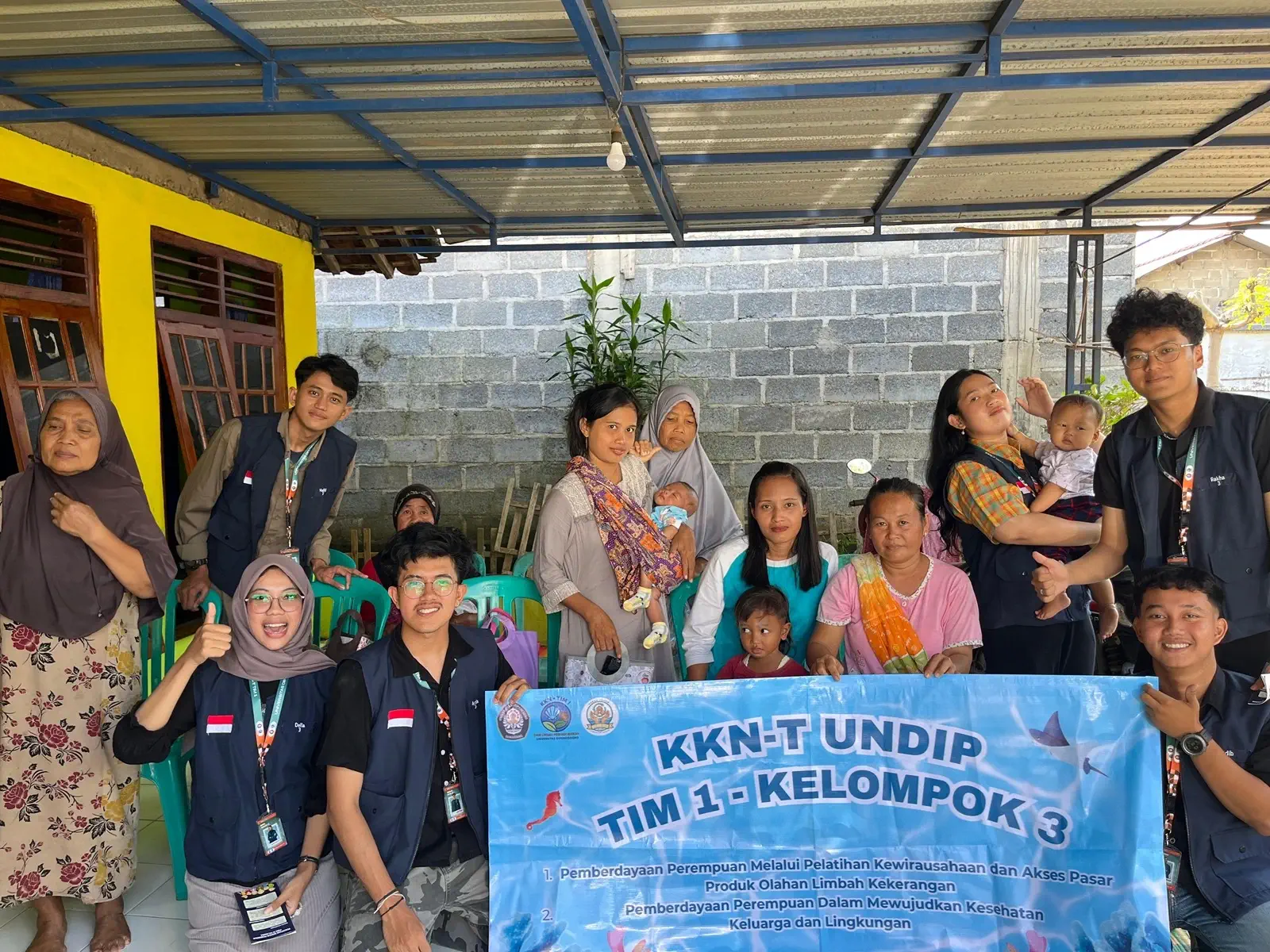
“Women have a key role in shaping healthy living habits in the family. If this awareness grows at the family level, it will have an impact on the wider environment,” said Della, one of the student presenters.
On another day, the activity continued with the cultivation of Family Medicinal Plants (TOGA) in the form of lemongrass using plastic gallon waste by Agroecotechnology and Industrial Engineering students. This innovation is expected to be a solution for reducing plastic waste while strengthening family health practices. Then, Chemistry students guided the practice of making natural lemongrass-based hand sanitizer from the plants that had been grown earlier. The ingredients used included 70% alcohol as an antimicrobial, lemongrass extract as an additional antimicrobial and fragrance, glycerin for moisturizing, and distilled water as the solvent for the hand sanitizer.
Participants were active in this session and gave positive responses, “What I like about this hand sanitizer is that it is easy to use, because we don’t have to wash our hands like using soap,” said Marfuah, one of the participants.
Reyza, one of the student presenters, added, “After being planted, I hope this lemongrass can continue to be used as hand sanitizer, so that it is sustainable and the community can independently maintain cleanliness.”
As the program’s closing, the students held a discussion with village officials. Law students prepared a policy brief related to health and environmental issues in Dukuh Roban Timur. Then, Communication Science students held a discussion based on the prepared policy brief and discussed strategic steps that the village government could take in responding to the existing problems.
“The awareness of the importance of public health here is still low, especially in terms of littering, such as in rivers or empty land. This is related to the absence of a Temporary Waste Disposal Site until now. We hope the village government can follow up on this issue, because health is everyone’s right,” said Amanda, the policy brief author.
Through these two multidisciplinary programs, the KKN-T Diponegoro University students hope to encourage women’s empowerment in the fields of economy and health, as well as build collective awareness among the people of Dukuh Roban Timur regarding local potential and the importance of healthy living behavior starting from the family.
The Thematic KKN Team 1 of Diponegoro University is divided into five groups. In Team 1, there are several KKL Supervising Lecturers, namely Prof. Dr. Indah Susilowati, M.Sc., Prof. Dr. Waridin, M.S., Prof. Dr. Nugroho SBM, M.Si., Dr. Hapsar, M.Si., Dr. Ita Widowati, M.Sc., dr. Fathur Nur Kholis, Sp.D., dr. Dinda Saraswati, Sp.D., dr. Ika Vemilllia, Sp.D., dr. Rizky Rakhmayanti, Sp.D., and dr. Prisca Luftia Rani, Sp.D.

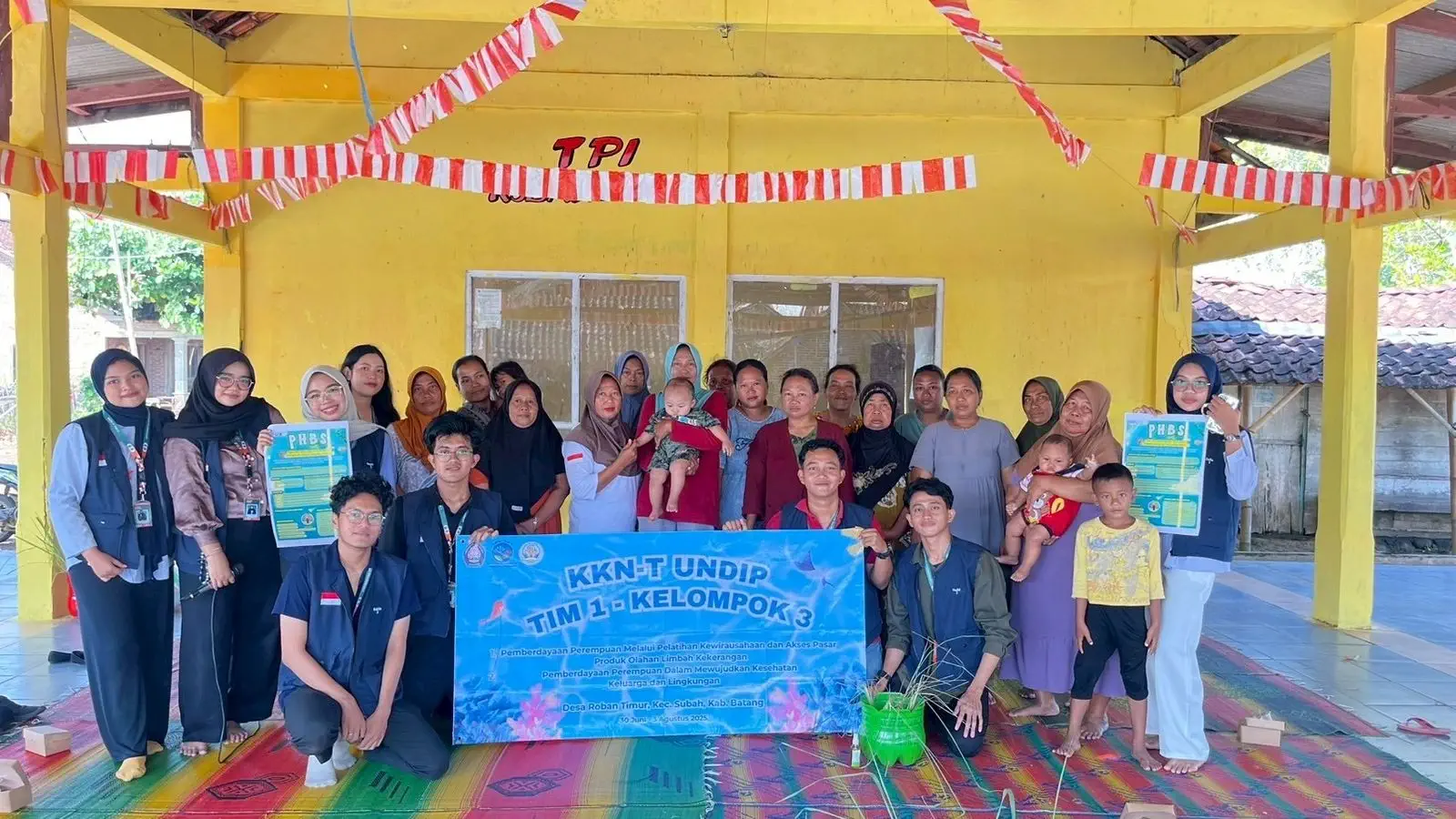
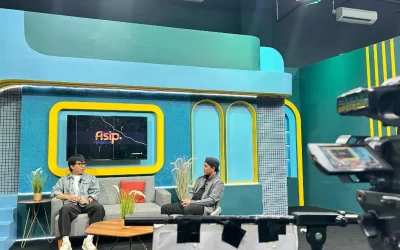
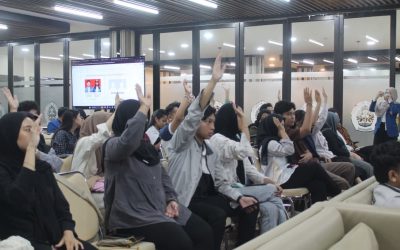
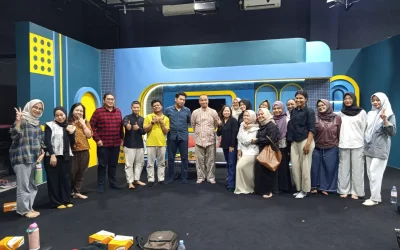
0 Comments